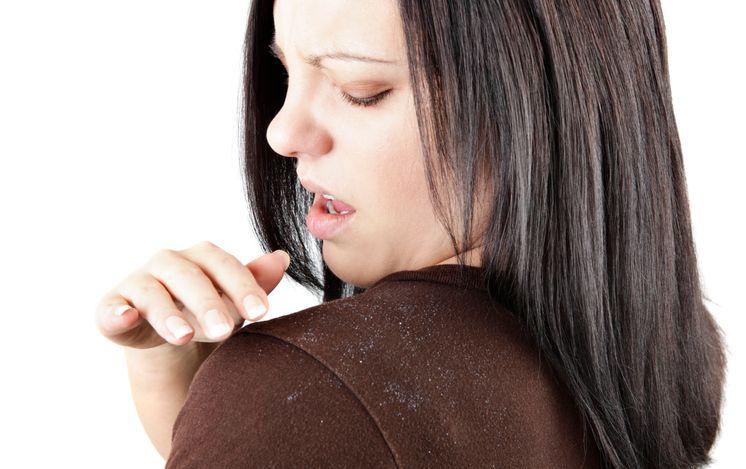
In this article, we’ll explore simple and effective solutions that can help you with simple ways to tackle Dandruff
Dandruff, the persistent snow-like flakes that often appear on your scalp and shoulders, is a common condition affecting millions worldwide. While dandruff can be an issue year-round, it often worsens in winter. Cold, dry air, low humidity, and indoor heating can exacerbate the problem, leading to a more aggravated and noticeable flake situation.
If you’re one of the many individuals who deal with this issue, you’re not alone, and the good news is that there are numerous ways to tackle dandruff in winter.
Table of Contents
What Causes Dandruff in Winter?
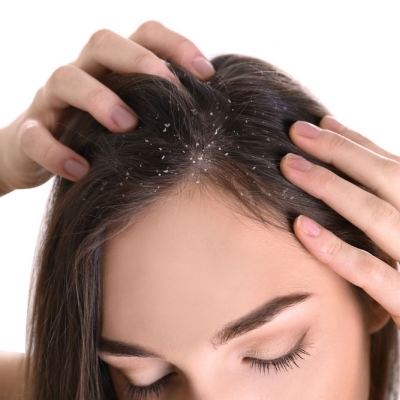
Before diving into solutions, it’s important to understand why dandruff becomes more prevalent during winter. Several factors contribute to this wintertime dandruff dilemma:
- Cold, Dry Air: The low humidity during winter can dry out your scalp. Dry skin get more possibility to flaking, and this can lead to dandruff. The scalp becomes less hydrated and more vulnerable to irritation, which triggers the shedding of dead skin cells.
- Indoor Heating: The heating systems in your home, office, or car can strip moisture from the air. This contributes to the dryness of both your skin and scalp, creating the perfect environment for dandruff to develop.
- Over-Washing Hair: In an attempt to stay clean and fresh during the winter, people often wash their hair more frequently. This can strip the scalp of its natural oils, leaving it vulnerable to dryness and irritation.
- Reduced Sunlight Exposure: During winter, reduced sunlight exposure often leads to vitamin D deficiency. Since vitamin D plays a crucial role in maintaining skin health, a lack of it can lead to dry, flaky skin on the scalp.
- Weakened Immune System: Winter is also the season when cold and flu viruses circulate, which can weaken your immune system. When your body experiences stress, it can disrupt the scalp’s natural balance, potentially leading to dandruff.
Simple Ways to Tackle Dandruff
Now that we know the causes, it’s time to explore practical, effective solutions to banish dandruff during the winter months. With a combination of lifestyle adjustments, skincare routines, and natural remedies, you can easily manage dandruff and restore your scalp to its healthy, flake-free state.
1. Keep Your Scalp Moisturized
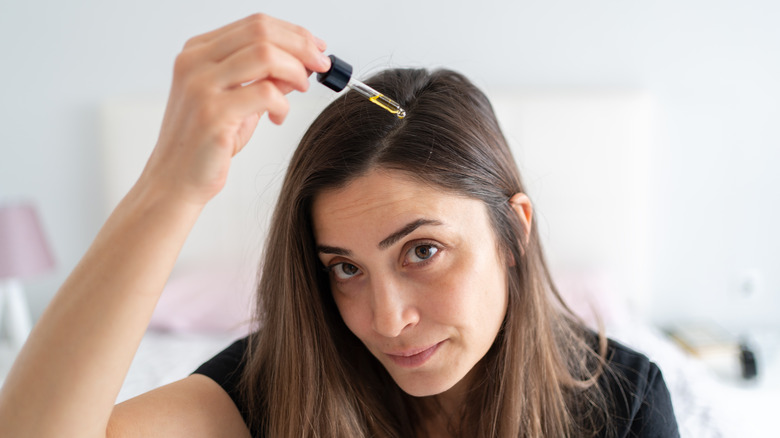
One of the most effective ways to prevent dandruff is to maintain a well-moisturized scalp. The cold, dry winter air can strip moisture from your skin and scalp, making hydration crucial. Here are some tips to keep them moisturized:
- Use a Moisturizing Shampoo: Look for shampoos that are specifically designed for dry scalp conditions. These formulas typically contain hydrating ingredients such as aloe vera, glycerin, or natural oils that help replenish moisture.
- Condition Your Hair Regularly: After shampooing, always follow up with a conditioner. Opt for a moisturizing conditioner that will seal in moisture and prevent your scalp from drying out.
- Use Natural Oils: Applying natural oils, such as coconut oil, olive oil, or argan oil, directly to your scalp can help nourish and hydrate it. Gently massage the oil into your scalp, leave it on for about 20–30 minutes, and then wash it out with a gentle shampoo.
2. Avoid Over-Washing Your Hair
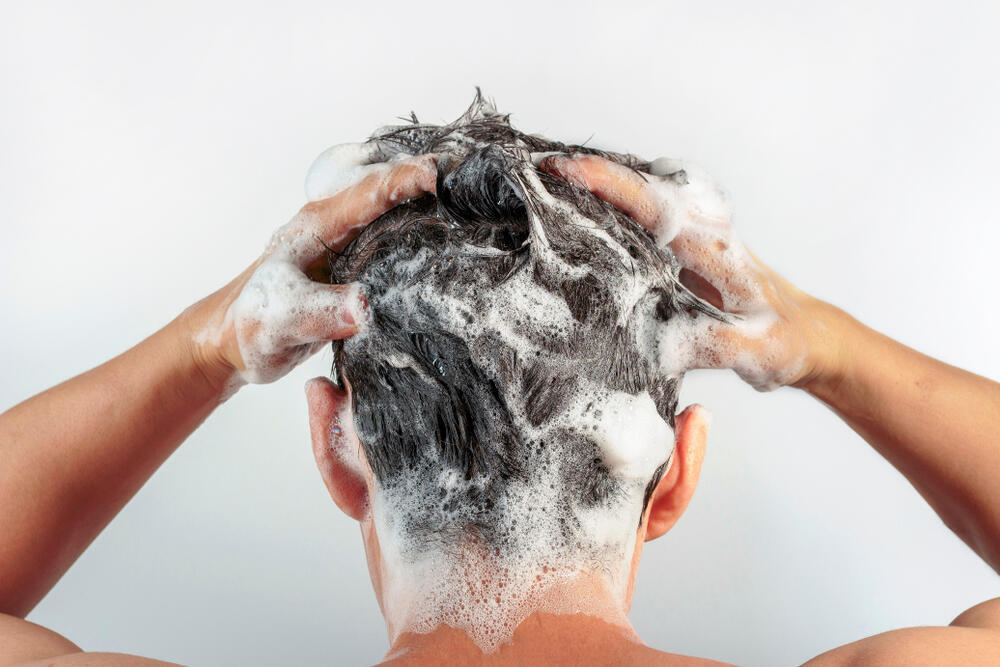
Washing your hair too frequently can strip your scalp of its natural oils, leading to dryness and irritation. In winter, it’s even more important to be mindful of your washing routine. Try not to wash your hair more than 2–3 times a week to help preserve your scalp’s natural moisture balance. If you feel your scalp getting oily between washes, try using a dry shampoo to absorb excess oil without over-drying your hair.
3. Use Anti-Dandruff Shampoos
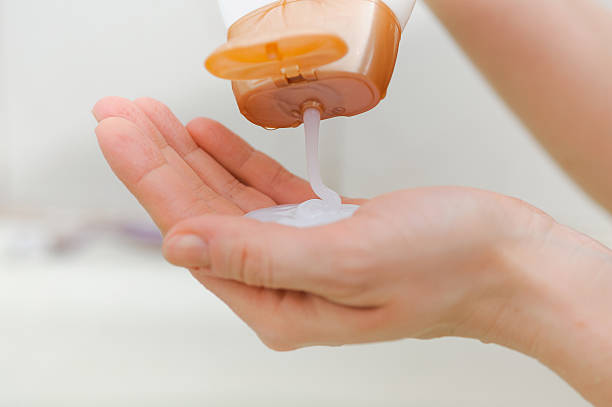
Anti-dandruff shampoos are formulated to combat the underlying causes of dandruff. Many of them contain active ingredients like:
- Zinc Pyrithione: This ingredient has antifungal and antibacterial properties that help control the growth of dandruff-causing fungi.
- Ketoconazole: A powerful antifungal that is effective in treating dandruff caused by fungal overgrowth on the scalp.
- Salicylic Acid: It works by breaking down the scale on the scalp, helping to reduce flakes.
- Tar-based Shampoos: Coal tar shampoos are effective for treating more severe dandruff conditions by slowing down the production of skin cells.
When using anti-dandruff shampoos, be sure to follow the instructions carefully, as some products may require you to leave them on your scalp for several minutes before rinsing.
4. Rinse with Apple Cider Vinegar

Apple cider vinegar (ACV) is a popular natural remedy for dandruff. Its acidic nature helps balance the pH of the scalp and can prevent the overgrowth of yeast, which is often linked to dandruff. Here’s how to use it:
- Mix equal parts of apple cider vinegar and water in a spray bottle.
- After shampooing, spray the mixture onto your scalp and let it sit for a few minutes.
- Rinse thoroughly with lukewarm water.
The vinegar also has antimicrobial properties that can help prevent scalp infections, which could worsen dandruff.
5. Maintain a Healthy Diet

Your diet plays a significant role in your skin health, including your scalp. A diet rich in essential nutrients can help promote a healthy scalp and prevent dandruff. Some key nutrients for scalp health include:
- Omega-3 Fatty Acids: Found in fatty fish like salmon, flaxseeds, and walnuts, omega-3s can help keep your skin hydrated and reduce inflammation on the scalp.
- Zinc: Zinc is crucial for skin health and helps regulate oil production. Foods rich in zinc include shellfish, pumpkin seeds, and beans.
- Vitamin B: Biotin, niacin, and other B vitamins help promote healthy hair and scalp. Incorporate eggs, nuts, and leafy greens into your diet for optimal results.
- Vitamin D: Since many people suffer from a lack of sunlight in winter, consider incorporating more vitamin D-rich foods into your meals, such as fortified milk, eggs, and fatty fish.
6. Stay Hydrated

It’s easy to forget about hydration during the winter months, but drinking enough water is just as important in cold weather as it is in the summer. Proper hydration helps keep your skin, including your scalp, moisturized and prevents dryness. Aim for at least eight glasses of water a day, and consider using a humidifier in your home to maintain moisture levels in the air.
7. Protect Your Scalp from the Elements

Cold air, wind, and snow can all dry out your scalp and exacerbate dandruff. Protect your scalp from the elements by wearing a hat or scarf when going outside. Be sure to choose a hat that is lined with breathable material to prevent sweating, which can irritate the scalp and worsen dandruff.
8. Manage Stress

Stress can trigger or worsen dandruff, especially during the winter when many people experience seasonal affective disorder (SAD) or other stress-related issues. Managing your stress is essential for overall well-being and can help prevent dandruff flare-ups. Consider incorporating relaxation techniques such as yoga, meditation, or deep breathing exercises into your daily routine.
9. Exfoliate Your Scalp
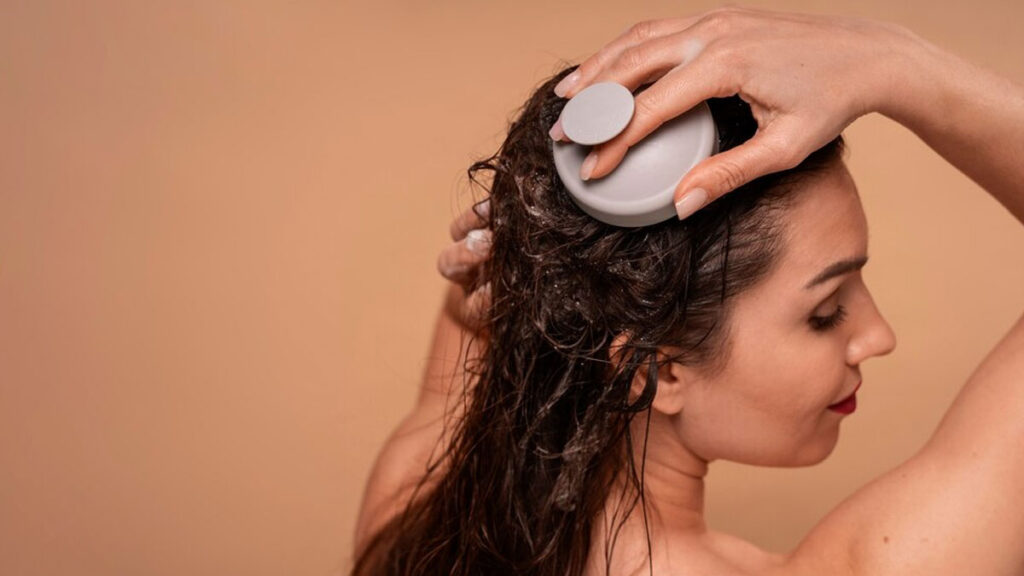
Just like your face, your scalp needs exfoliation too. Regular exfoliation helps remove dead skin cells, unclog hair follicles, and promote a healthier scalp. You can use a gentle scalp scrub or make your own at home by mixing sugar with coconut or olive oil. Massage it into your scalp, leave it on for a few minutes, and rinse thoroughly.
10. Seek Professional Help if Needed
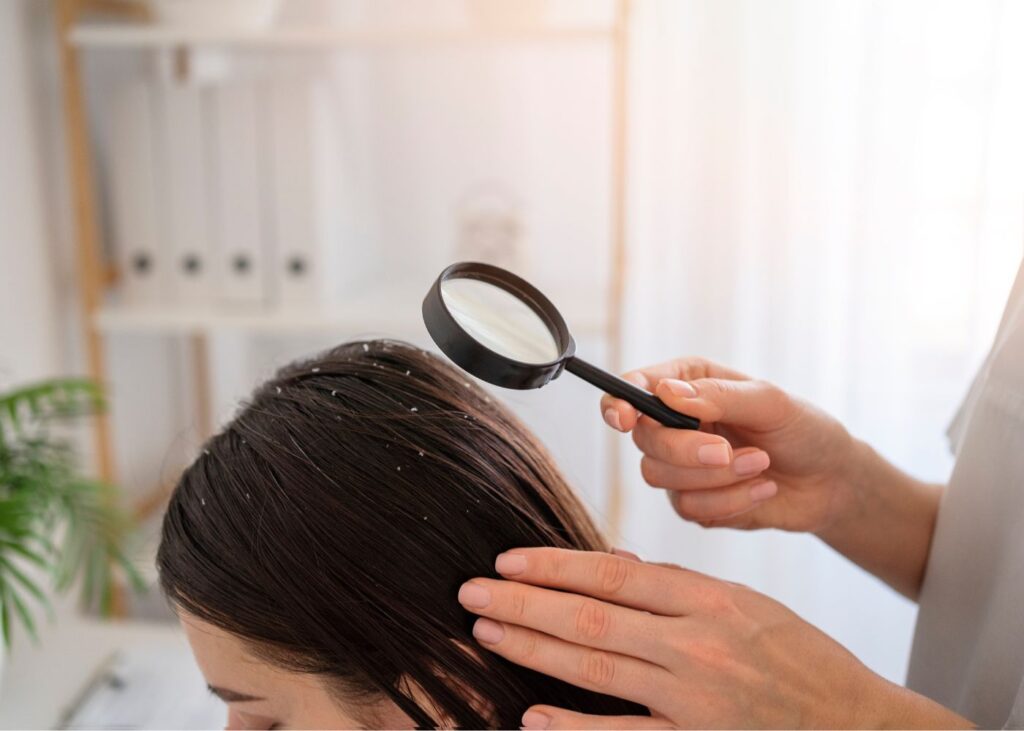
If you’ve tried various treatments and still struggle with persistent dandruff, it may be time to consult a dermatologist. A dermatologist can help determine if your dandruff is caused by an underlying condition such as psoriasis or seborrheic dermatitis. They can recommend more specialized treatments such as prescription shampoos or topical treatments.
Conclusion
Dandruff during winter can be a frustrating and persistent problem, but with the right care and attention, you can manage it effectively. By moisturizing your scalp, using the right shampoos, maintaining a healthy diet, and incorporating natural remedies, you can say goodbye to winter flakes and enjoy a healthier, flake-free scalp all season long. Remember, consistency is key—by making a few simple adjustments to your routine, you’ll see noticeable improvements in no time.

